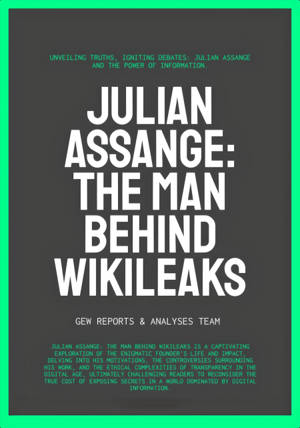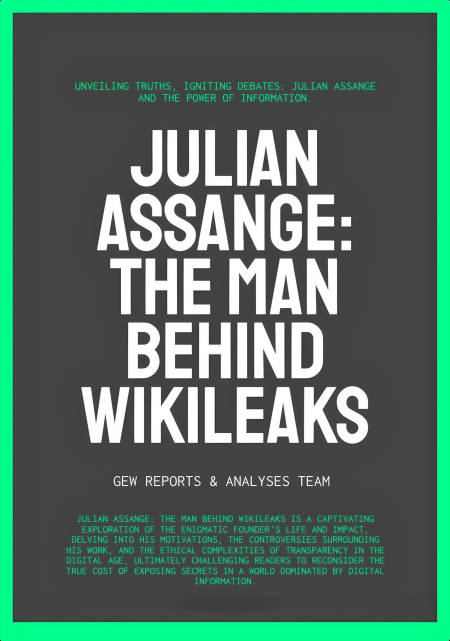
- Afhalen na 1 uur in een winkel met voorraad
- Gratis thuislevering in België vanaf € 30
- Ruim aanbod met 7 miljoen producten
- Afhalen na 1 uur in een winkel met voorraad
- Gratis thuislevering in België vanaf € 30
- Ruim aanbod met 7 miljoen producten
Zoeken
€ 16,49
+ 16 punten
Omschrijving
The book provides a comprehensive exploration of Julian Assange, the founder of WikiLeaks, discussing his motivations, the ethical complexities of transparency, the impact of his disclosures, and the ongoing debates surrounding information sharing in the digital age. "Julian Assange: The Man Behind WikiLeaks" explores the transformative power of rebellion in driving societal change, focusing on this key figure. It delves into Assange's formative experiences and the genesis of WikiLeaks, highlighting his impact on transparency and resistance against power structures in the digital age.
Key Takeaways
Julian Assange's WikiLeaks fundamentally altered global journalism and information dissemination by exposing hidden truths and prompting societal debates. WikiLeaks' releases catalyzed significant political, legal, and societal shifts, including changes in governmental transparency, corporate accountability, and international law. The platform's impact sparked widespread reassessment of data security and the role of technology in safeguarding information. Assange's legacy underscores the importance of protecting whistleblowers and balancing transparency with national security and privacy. The controversies and legal battles surrounding WikiLeaks have prompted ongoing discussions about the ethical responsibilities of information handlers and the evolving landscape of digital activism. Organizations similar to WikiLeaks continue to shape public discourse on transparency and accountability, while technological advancements pose new challenges and opportunities in information dissemination. WikiLeaks' influence has fostered a reevaluation of media practices, legal precedents, and the importance of informed public engagement in democratic societies.Specificaties
Betrokkenen
- Auteur(s):
- Uitgeverij:
Inhoud
- Taal:
- Engels
Eigenschappen
- Productcode (EAN):
- 9798227476036
- Verschijningsdatum:
- 31/05/2024
- Uitvoering:
- E-book
- Beveiligd met:
- Adobe DRM
- Formaat:
- ePub

Alleen bij Standaard Boekhandel
+ 16 punten op je klantenkaart van Standaard Boekhandel
Beoordelingen
We publiceren alleen reviews die voldoen aan de voorwaarden voor reviews. Bekijk onze voorwaarden voor reviews.











